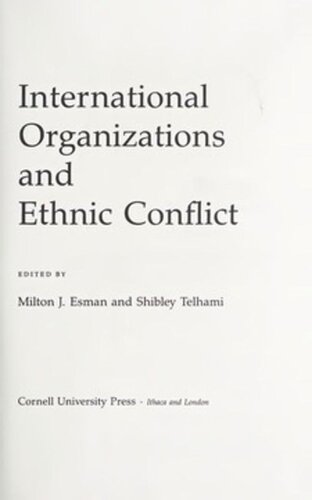

Most ebook files are in PDF format, so you can easily read them using various software such as Foxit Reader or directly on the Google Chrome browser.
Some ebook files are released by publishers in other formats such as .awz, .mobi, .epub, .fb2, etc. You may need to install specific software to read these formats on mobile/PC, such as Calibre.
Please read the tutorial at this link: https://ebookbell.com/faq
We offer FREE conversion to the popular formats you request; however, this may take some time. Therefore, right after payment, please email us, and we will try to provide the service as quickly as possible.
For some exceptional file formats or broken links (if any), please refrain from opening any disputes. Instead, email us first, and we will try to assist within a maximum of 6 hours.
EbookBell Team

5.0
38 reviewsFrom Rwanda to Somalia to the former Yugoslavia, one feature of the post-Cold War world has become dreadfully clear. Ethnic conflicts are escalating, and with them demands for international intervention. But legally most ethnic conflicts are "internal" matters. How are international organizations, their resources stretched woefully thin, to know when intervention is appropriate or possible? This volume addresses the changing nature of relations between war-torn multiethnic states and international organizations, particularly the United Nations and its agencies.
Are the established norms that limit intervention in ethnic conflicts adequate to contemporary conditions? Can international organizations meet the increasing demand? If not, what are the consequences of the disparities between established norms, current capabilities, and expanding expectations—and how might these disparities be narrowed? The contributors explore the desirability and potential effectiveness of international interventions in ethnic conflicts. Detailed studies of two specific cases of severe and violent tensions, in Lebanon and Yugoslavia, complement the general discussion with particular insights into the risks and exigencies of international attempts to manage ethnic civil war.
A deeply thoughtful overview of one of the most pressing and perplexing issues confronting the world today, this volume clarifies the changing role of international organizations in an increasingly fragmented world.